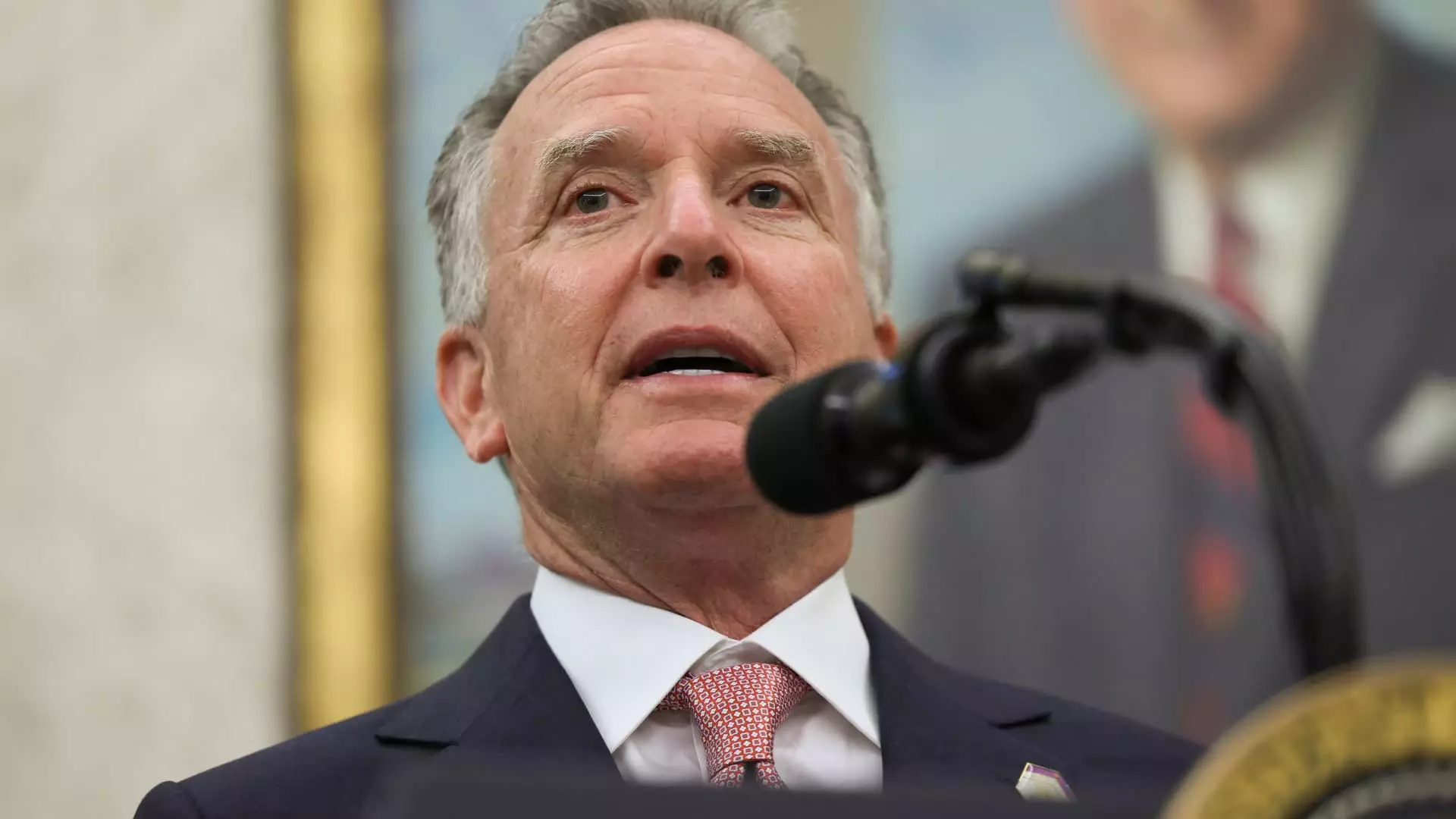Recent statements by U.S. officials suggesting that Russia has somewhat conceded to a “security guarantee” akin to NATO’s Article 5 mark a significant shift in diplomatic rhetoric. On the surface, this appears to be a promising development—a potential breakthrough that could pave the way for ending the protracted conflict in Ukraine. However, a critical perspective must question whether this narrative truly reflects meaningful progress or if it is fundamentally flawed, serving more as political posturing than substantive change. The notion that Vladimir Putin has agreed to a guarantee resembling NATO’s collective defense clause should be approached with skepticism, especially given Russia’s history of strategic ambiguity and diplomatic deception.
Despite claims of Russian consent, history warns us that Moscow’s actions seldom align neatly with verbal commitments. Putin’s regime has a track record of exploiting negotiations to buy time, sow confusion, or reset conditions in their favor. To accept this supposed concession at face value would be naive. The real test lies in whether tangible security measures are actually integrated into a formal, enforceable agreement—something that has been sorely lacking in previous diplomatic efforts. Public statements about “progress” often mask underlying tensions and unresolved disagreements that can resurface unexpectedly, sabotaging hopes for a durable peace.
The Questionable Commitment of Major International Actors
Equally problematic is the broader diplomatic theater, particularly the European Union’s and the United States’ apparent eagerness to endorse these vague security guarantees. European leaders have expressed willingness to participate, yet their commitment remains ambiguous. Our collective experience suggests that assurances without concrete implementation are fragile at best. Relying on declarative support without binding mechanisms risks leaving Ukraine vulnerable to future Russian aggression and abandoning its sovereignty to incomplete negotiations.
Furthermore, the mixed signals coming from global diplomats—especially from the United States—highlight a broader tendency to favor short-term political gains over genuine resolution. The meeting between Trump and Putin, for example, was hailed as “productive,” but without details, its substance remains questionable. Was it a genuine step toward peace, or merely a strategic pause? The scant transparency surrounding these talks fuels skepticism about whether overarching interests, including domestic politics and geopolitical influence, are overshadowing the urgent needs of Ukraine and its people.
The Reality Check: War, Peace, and the Politics of Concession
The comments from politicians like Marco Rubio expose another layer of complexity: the delicate balanceof power and the ever-present threat of escalating sanctions. Rubio’s warning that Russia might face “additional consequences” if peace efforts stall shows that deterrence remains a key component of U.S. strategy. Yet, the suggestion that sanctions could escalate without engagement reveals a cycle of aggression and containment that risks prolonging the conflict rather than resolving it. If sanctions are weaponized as leverage rather than pressure for genuine negotiations, they risk undermining trust and fueling hostility.
On the other hand, Zelenskyy’s firm stance on territorial integrity illustrates the sincerity behind Ukraine’s resistance. His refusal to cede its sovereign lands—even in the face of diplomatic pressure—indicates a broader moral and constitutional commitment that cannot be dismissed lightly. Any peace process that ignores this reality risks undermining Ukraine’s sovereignty and emboldening future aggressions. Genuine peace must address the root causes of conflict, not just the superficial concessions negotiated behind closed doors. A deal that requires Ukraine to abandon its aspirations for NATO membership or to recognize illegal annexations would undermine the very principles of international law and fairness.
The Risks of Promising too Much, Too Soon
Offering security guarantees that sound too good to be true invites skepticism—especially when such guarantees are contextualized as a basis for ending a bloody war. The temptation for Western leaders is to frame these developments as a political victory, but it’s crucial to scrutinize whether these claims translate into real, enforceable commitments. Historically, similar promises have often resulted in disappointment and renewed conflict once the euphemisms wear off.
Moreover, European and American policymakers must avoid the peril of accepting vague assurances that could be exploited by Russia in future negotiations. Diplomatic progress should be grounded in transparency, concrete commitments, and respect for Ukraine’s sovereignty. Rhetoric that appears overly optimistic risks conflating diplomatic maneuvering with actual peace, when in reality, negotiations could be superficial or designed to buy time for Russia to regroup.
Ultimately, international actors should prioritize a balanced approach—one that combines diplomatic flexibility with unwavering support for Ukraine’s territorial integrity and security needs. Negotiations are undoubtedly necessary, but they must be built on the foundation of realism, not wishful thinking. Only by critically assessing the motives and sincerity of all involved can we hope to avoid superficial peace at the expense of genuine stability and justice.


Leave a Reply